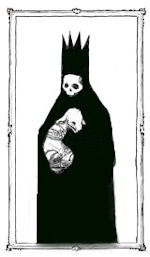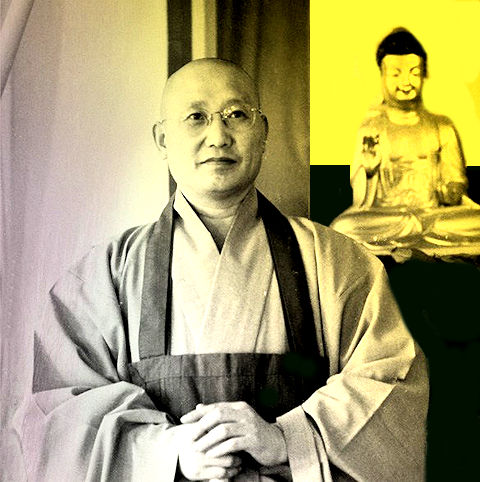139. Death
 When I write my chronicles, I usually strive to be funny, provocative,
or satirical, but this chronicle is different. So I'll get to the point.
When I write my chronicles, I usually strive to be funny, provocative,
or satirical, but this chronicle is different. So I'll get to the point.
Yesterday Richard told me that his older brother suddenly died. I never knew his brother. He lived far away. Since then, Richard has been mostly stoic, but I know he's having some ups and downs. (I know his emotions very well.)
Knowing this leads me to consider death. I think most humans fear death. They want to live forever, even though they know that everyone who is born must eventually die. It's a natural process. All animals, except the few sentient ones like me, don't know what death is. They just live their lives each day until one day they die and are no more. There is no fear of dying among animals. There only is living until living ceases to be. It's elegant.
So what is this fear of dying among humans, since they know they're going to die sooner or later? They just don't get it, and they just don't accept it. They palpitate about someone they know who has died. They're afraid to say "died" or "dead" because those words imply finality. Instead they say, "she passed away," or "he went to a better place," or he's now in the bosom of Jesus. Like the deceased (dead) floated away from this reality into another. What other?
Sentient dogs like me know that there is no "other". When you're dead, you're just dead. Fini. You no longer are. I know religious folks vigorously dispute this. They have some solace in believing that a dead human emerges in a new reality. But is this really comforting?
The big time religions say that a dead human either goes to heaven or to hell depending upon how virtuous or sinful she was. It's one thing to believe that a saintly loved one who died is now enjoying eternal bliss in heaven. It's another thing to believe that a deceased loved one who was an evildoer when alive is now being tortured in hell for eternity. It don't make any sense to us dogs.
When you're dead, that's it. It's the way of nature. It's the way the birth and the eventual death of beings is. Humans and all other living things are bound to this basic reality. It's so simple and natural. Why complicate it with ancient myths of rebirth, resurrection, and reincarnation?
The great Korean-born Zen teacher Seung Sahn Soen-sa, in his book Dropping Ashes on the Buddha: The Teachings of Zen Master Seung Sahn, recounted his conversation with Gita, the seven-year-old daughter of one of his students at the Cambridge Zen Center, after the death of the center’s beloved cat, Katz. Katz had died after a long illness and was given a traditional Buddhist burial, but the little girl remained troubled by his death.
One day after practice, she came to the great Zen teacher for an explanation. This is what he said:
Gita asked, “What happened to Katzie? Where did he go?”
Soen-sa said, “Where do you come from?”
“From my mother’s belly.”
“Where does your mother come from?”
Gita was silent.
Soen-sa said,
“Everything in the world comes from the same one thing. It is like in a
cookie factory. Many different kinds of cookies are made — lions,
tigers, elephants, houses, people. They all have different shapes and
different names, but they are all made from the same dough and they all
taste the same. So all the different things that you see — a cat, a
person, a tree, the sun, this floor — all these things are really the
same.”
“What are they?”
Soen-sa answered by urging the little girl to contact the universal
life-force of the metaphorical cookie dough:
“People give them many different names. But in themselves, they have
no names. When you are thinking, all things have different names and
different shapes. But when you are not thinking, all things are the
same. There are no words for them. People make the words. A cat doesn’t
say, ‘I am a cat.’ People say, ‘This is a cat.’ The sun doesn’t say, ‘My
name is sun.’ People say, ‘This is the sun.’"
So when someone asks you, ‘What is this?’, how should you answer?”
“I shouldn’t use words.”
Soen-sa said, “Very good! You shouldn’t use words. So if someone asks
you, ‘What is Buddha?’, what would be a good answer?”
Gita was silent.
Soen-sa said, “Now you ask me.”
“What is Buddha?”
Soen-sa hit the floor.
Gita laughed.
Soen-sa said, “Now I ask you: What is Buddha?”
Gita hit the floor.
“What is God?”
Gita hit the floor.
“What is your mother?”
Gita hit the floor.
“What are you?”
Gita hit the floor.
“Very good! This is what all things in the world are made of. You and
Buddha and God and your mother and the whole world are the same.”
Gita smiled.
Soen-sa said, “Do you have any more questions?”
“You still haven’t told me where Katz went.”
Soen-sa leaned over, looked into her eyes, and said, “You already
understand.”
Gita said, “Oh!” and hit the floor very hard. Then she laughed.
As she was opening the door, she turned to Soen-sa and said, “But I’m
not going to answer that way when I’m in school. I’m going to give
regular answers!”
Soen-sa laughed.

He not busy being born is busy dying. ~Bob Dylan